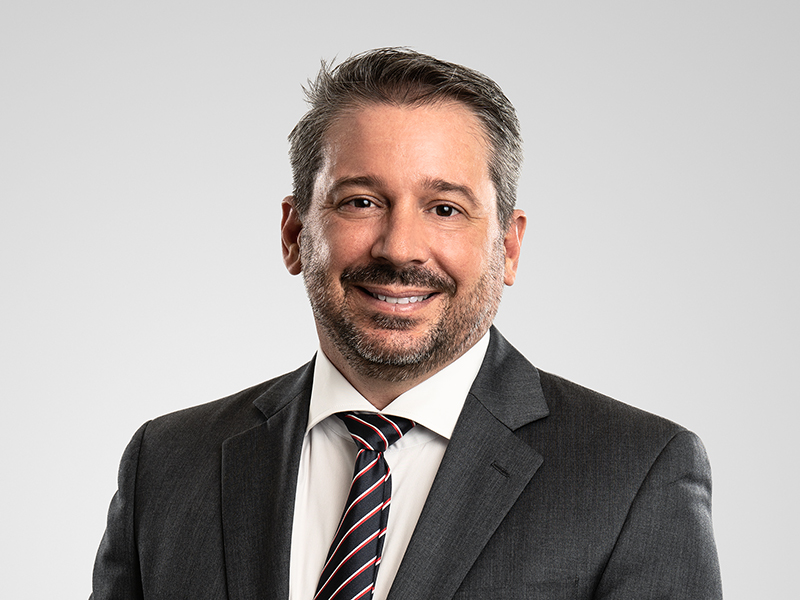Cayman funds: compliance and beneficial ownership reporting
Cayman compliance considerations for US managers with offshore funds
For many US-based managers of alternative investment funds, forming a fund vehicle in the Cayman Islands has almost become standard industry practice. Cayman Islands vehicles are used across a range of strategies, including private equity, venture capital, hedge funds, digital assets and private credit. These vehicles can be used in multiple ways in a fund structure, whether as a feeder fund, master fund, standalone fund, or investment manager.
US managers frequently find that, on the advice of their US tax advisers and US counsel, an offshore feeder fund can efficiently cater to both US tax-exempt investors and non-US investors seeking appropriately structured investment vehicles. However, Cayman fund structures bring with them important regulatory obligations, including specific Anti-Money Laundering (AML) compliance, Foreign Account Tax Compliance Act (FATCA) and Common Reporting Standard (CRS) regimes, and beneficial ownership reporting.
This article provides an overview of the key compliance considerations for US-based managers who use Cayman Islands fund vehicles in their overall fund structure, focusing specifically on AML, FATCA/CRS obligations, and beneficial ownership reporting responsibilities. It also highlights why partnering with specialist providers like Harneys Fiduciary can significantly ease these burdens.
Navigate directly to key sections
Why do US fund managers employ Cayman fund structures?
US fund managers, and their US tax and legal advisers, often consider employing Cayman fund vehicles in an overall fund structure in order to provide a tax-neutral, stable, and regulated entity which can be attractive to both international and US tax-exempt investors. These fund vehicles streamline global capital raising, provide strong legal protections, and ensure regulatory compliance. This flexibility enables managers to scale investment strategies effectively while appealing broadly to sophisticated global investors.
Compliance requirements
A Cayman Islands fund managed by a US-based investment manager must comply with multiple Cayman regulatory frameworks:
FATCA and CRS classification and reporting
All Cayman funds with US investors must comply with FATCA, and report financial information related to US taxpayers to US authorities. Additionally, funds must meet the Cayman Islands’ CRS obligations by filing annual CRS returns and compliance forms with the Cayman Tax Information Authority (TIA).
Non-compliance can lead to substantial financial penalties, regulatory scrutiny, and reputational damage.
AML compliance and KYC process
Cayman Funds must appoint AML officers - specifically an AML Compliance Officer (AMLCO), Money Laundering Reporting Officer (MLRO), and Deputy MLRO (DMLRO), to ensure strict adherence to AML and Counter Financing of Terrorism (CFT) regulations.
A critical part of a Cayman fund’s AML compliance function is ensuring that the fund’s AML framework aligns with Cayman Islands Monetary Authority (CIMA) regulations, that service providers are appropriately overseen to guarantee compliance, and that robust due diligence is maintained. With increasing regulatory scrutiny, having a dedicated AMLCO ensures the Cayman fund remains protected, compliant, and ahead of evolving AML risks.
Harneys Fiduciary provides a comprehensive AML/Know Your Customer (KYC) service, ensuring that AML/KYC documentation is collected and maintained to the required Cayman standard. If, as is often the case, a fund’s US administrator only conducts KYC checks on a fund’s investors to prevailing US AML/KYC standards, Harneys Fiduciary can seamlessly partner with US fund administrators to ensure that a Cayman fund’s AML/KYC processes fully comply with the more stringent Cayman requirements and plug any gaps in the service offering accordingly.
Beneficial ownership reporting requirements
Under Cayman regulations, every fund must maintain comprehensive information on its beneficial owners, clearly identifying individuals who ultimately own or control 25% or more of the fund. This requirement ensures transparency and adherence to international standards, helping combat financial crimes like money laundering and tax evasion.
Given the fluid and transactional nature of funds, Cayman law permits funds to appoint a Beneficial Ownership Point of Contact (BO Contact Person) to appear on the beneficial ownership register. The BO contact person liaises directly with regulatory authorities and ensures your beneficial ownership reporting obligations remain compliant and up to date.
Why outsource Cayman compliance obligations?
Often, US-based fund managers have lean operations focused primarily on sourcing and executing investments, handling the fund’s financial reporting, and maintaining relations with limited partners, rather than taking on complex offshore compliance tasks. Furthermore, many US-based fund administrators do not provide comprehensive Cayman-specific compliance services or have dedicated on the ground expertise in the Cayman Islands.
Outsourcing compliance responsibilities to Cayman specialists such as Harneys Fiduciary ensures that:
- Your fund maintains robust compliance without distracting your core investment, finance, or operations teams
- You mitigate risk by relying on experts familiar with evolving Cayman Islands regulations
- You close Cayman-specific compliance services gaps which may be left by the US fund administrator, creating a seamless investor experience
Why Harneys Fiduciary?
Harneys Fiduciary is a global provider of compliance solutions, and offers highly specialised expertise tailored precisely to the needs of US fund managers navigating Cayman compliance obligations. Our services can be tailored to support US-based managers of complex offshore structures, and our core strengths include:
- Local Cayman expertise: Our experienced team has direct relationships with Cayman regulatory authorities, ensuring your compliance frameworks are proactive, not reactive
- End-to-end service: We provide comprehensive FATCA/CRS reporting, AML officer appointments (AMLCO, MLRO, DMLRO), robust KYC process implementation, and Beneficial Ownership reporting, all within a unified compliance service package
- Seamless integration: Our independent status enables us to collaborate effortlessly with your existing US-based fund administrator, delivering a cohesive and streamlined compliance experience
Key takeaways
Cayman Islands funds managed by US managers carry significant compliance obligations, including adherence to FATCA, CRS, robust AML and KYC processes, as well as detailed beneficial ownership reporting. Outsourcing these specialised compliance tasks to expert companies like Harneys Fiduciary significantly reduces operational burdens and compliance risks, enabling internal teams to concentrate on core activities. Harneys Fiduciary delivers comprehensive Cayman compliance services, harnessing extensive local expertise to offer practical, efficient, and fully compliant solutions tailored to your specific fund structures.
Next steps: simplify your Cayman Islands compliance
If you are a fund manager or fund administrator interested in exploring how Harneys Fiduciary can assist with managing the Cayman Islands compliance obligations outlined in this article, please reach out directly to Murray Roberts or Richard Gordon. We will help streamline your compliance responsibilities, ensuring that you can confidently focus on delivering returns to your investors.
FAQs from fund managers about compliance obligations in Cayman
What compliance obligations do Cayman funds have?
Cayman Funds must also comply with FATCA and CRS reporting obligations, implement robust AML/KYC processes, maintain accurate beneficial ownership reports, and appoint AML officers (AMLCO, MLRO, DMLRO).
What is FATCA and CRS reporting, and what are the deadlines?
FATCA is a US regulation requiring funds to report financial details of US taxpayers. CRS is a global tax transparency initiative requiring similar disclosures to Cayman’s Tax Information Authority (TIA).
- FATCA deadline: Annually by 31 July (reporting previous calendar year data)
- CRS deadline: Annual CRS returns due by 31 July; CRS compliance forms due by 15 September
What is beneficial ownership reporting, and who must provide it?
The beneficial ownership regime requires funds to identify individuals who hold 25% or more of a fund’s ownership or control significant management decisions. All Cayman funds must provide and regularly update their Beneficial Ownership register to comply with Cayman Islands regulations.
Can Cayman funds streamline their beneficial ownership obligations?
Yes, Cayman funds are permitted to appoint a beneficial ownership contact person who acts as a liaison with regulatory authorities, reducing the administrative burden.
Why should US fund managers outsource Cayman compliance tasks?
Outsourcing ensures specialised local regulatory expertise, reduces operational burdens on the manager, mitigates compliance risks, and addresses Cayman-specific gaps that some US-based fund administrators may be unable to cover.
Who typically provides AML Officer appointments (AMLCO, MLRO, DMLRO) in Cayman?
Specialist fiduciary services providers based in the Cayman Islands, such as Harneys Fiduciary, offer these AML officer appointments, ensuring compliance with local AML regulations.
Who handles FATCA and CRS reporting obligations for Cayman funds?
Cayman-based compliance solutions providers such as Harneys Fiduciary can manage FATCA and CRS classification, registration, reporting, and ongoing compliance obligations efficiently.
What are the advantages of using an independent compliance solutions provider in Cayman?
Key advantages include local regulatory expertise, comprehensive management of compliance services (AML/KYC, FATCA/CRS, beneficial ownership reporting), and seamless integration with existing US-based fund administrators’ platforms.
What happens if Cayman compliance obligations are not met?
Non-compliance can result in significant financial penalties, regulatory sanctions and potential disruptions to the fund’s operations.
Are there penalties for failing to maintain accurate beneficial ownership records?
Yes, failure to accurately maintain or timely update beneficial ownership records in the Cayman Islands can lead to regulatory fines and enforcement actions.


